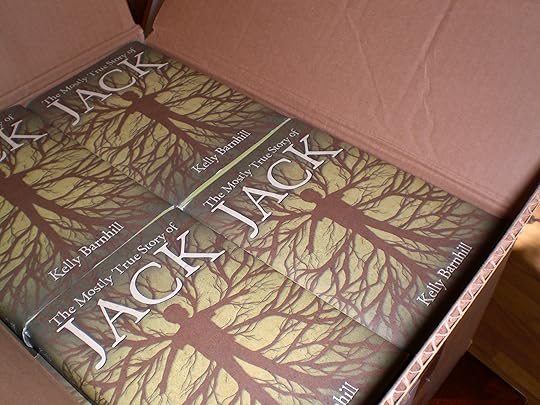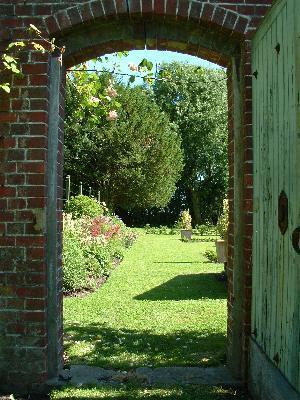Kelly Barnhill's Blog, page 25
July 18, 2011
Ten Odd Facts That You Never Wanted to Know
1. I can't tell the difference between right and left. I understand that right exists and left exists, but I can no sooner tell one from the other than can a person with tone-deafness tell the difference between A-flat and D-sharp.
2. Because of my inability to tell the difference between right and left, I failed my driver's license test four times. Or, at least I tell myself that this is the reason. The other reason is that I'm not a very good driver.
3. Once, when I was very young and very stupid – and acting on a dare – I jumped off of a bridge over the Guadalquivir river in Seville, Spain, into the dark waters below. This bridge, actually: 
My friends cheered me on. Some followed me into the river. Some were too afraid. A funny thing happens to a person when they do something really, really really stupid. Time stops, for one. Or, no, it isn't that it stops, it's just that it goes prismatic. Like Vonnegut's character, I had become unstuck – UNSTUCK! – in time. And I don't think I was ever put back in place properly. In any case, as I fell, the inky water seemed to freeze into lead. The faces of my friends leaning over above me froze as well. And all at once, I saw every moment of my life glinting like shards. And not just my life – every moment of that river too. That river had seen battles and atrocities and inquisitions and expeditions. Christopher Columbus sailed the rapidly approaching waters under my feet. So did Franco. So did the resistance. Each moment spangled before me like stars.
I splashed down. I lived. My friends splashed near. They lived. We suffered terrible rashes from the centuries of pollution running through that river, but we lived.
We found out later that the river bottom is man made, and it's banked. If we were just thirty feet to the right or left, we would have landed in about five feet of water, and we would have been dead. Stupid? Oh, my yes.
4. I can't remember number sequences. Like at all. It took me over a year to learn my home phone number. I still don't know my cell number. And when I write a number down, I start at the middle and work outwards. Always have. No idea why.
5. I have a wrist that is permanently dislocated, thanks to an Unfortunate Incident with a very pissed-off cow. Every time I rotate my hand, my wrist shudders, pauses, and pops out of joint. Then it pops back in. Doesn't hurt much, so I've never bothered to fix it. Also, it has the added benefit of giving me a quick way of telling which is right and which is left. (It's my right wrist that pops. I think. Unless it's my left.)
6. Once, when there was a series of stranger-rapes in my neighborhood, my mom signed up my sisters and I at a local self-defense course. I learned how to kill a man by hitting his nose and that a pencil or a set of keys can be a deadly weapon and that if I was ever in doubt I should go for the eyes. In fact, my instructor's voice barking at us, "GO FOR THE EYES GO FOR THE EYES" over and over is a thing that haunts my nightmares. Whereas, I never have nightmares about the serial rapist, which just goes to show you that you never can tell what, exactly, will scar us for life.
7. I had to become certified in First Aid and CPR in order to graduate from high school. That requirement no longer exists. Which is too bad because the information I learned from that class saved the life of my middle child on three separate occasions. (Can you put a price on an effective Heimlich maneuver instruction? No, sir, you cannot.)
8. There was a time in my life when I could bench press my own body weight. That time, alas, has passed. Now I feel lucky to have gotten a heaping basket of laundry up the stairs.
9. I wrote two books before I ever told anyone that I had started writing again. (I had stopped for a long time after college – distracted by love and politics and wandering and graduate school and shiftlessness and baby-making. I was on the scenic route, and I don't regret it.) They were, as books go, uniformly terrible. I printed them out slipped them into the recycling bin and waved goodbye. Then I wiped my hard drive. And while I don't miss them, sometimes I have dreams that they have become ambulatory, that there are paper fingers and paper toes and paper eyes and paper mouths wandering around my house. Paper spines and paper hips swishing as they walk. When they sneeze, letters scatter across the ground. When they say, "Excuse me", their words type against the walls or the windows, and vanish before I can see.
Is this normal? Does this happen to anyone else?
10. Once I was on a date with a boy. I knew I liked him. Then he recited a poem by e.e. cummings, and I loved him ever since. I was twenty. It was October and cold, and I loved him so much I thought I'd die of it. He credits e.e. cummings. I credit poetry memorization (would I have loved him as much if he had recited Gerard Manly Hopkins or Mary Oliver or Nikki Giovanni? Probably.)
So let this be a lesson to all of you: poetry can be your ace in the hole in the dating department. Memorize poetry, lest you die alone.
And oh! He was lovely, and oh! How he closed his eyes in that last stanza. Here it is:
e.e. cummings – somewhere i have never travelled, gladly beyond
somewhere i have never travelled, gladly beyond
any experience,your eyes have their silence:
in your most frail gesture are things which enclose me,
or which i cannot touch because they are too near
your slightest look will easily unclose me
though i have closed myself as fingers,
you open always petal by petal myself as Spring opens
(touching skilfully,mysteriously)her first rose
or if your wish be to close me, i and
my life will shut very beautifully ,suddenly,
as when the heart of this flower imagines
the snow carefully everywhere descending;
nothing which we are to perceive in this world equals
the power of your intense fragility:whose texture
compels me with the color of its countries,
rendering death and forever with each breathing
(i do not know what it is about you that closes
and opens;only something in me understands
the voice of your eyes is deeper than all roses)
nobody,not even the rain,has such small hands
And later – much later – I recited this:
Kidnap Poem
ever been kidnapped
by a poet
if i were a poet
i'd kidnap you
put you in my phrases and meter
you to jones beach
or maybe coney island
or maybe just to my house
lyric you in lilacs
dash you in the rain
blend into the beach
to complement my see
play the lyre for you
ode you with my love song
anything to win you
wrap you in the red Black green
show you off to mama
yeah if i were a poet i'd kid
nap you
Filed under: Uncategorized Tagged: cows, idiocy, misspent youth, secret histories, sevilla spain, the process of artistic development, the process of becoming a writer, tonal deafness








July 15, 2011
Lessons in Pedestal-Falling
Last night, at around two in the morning, I woke to the sound of weeping. My son sat on the floor, his carefully-crafted note to the tooth fairy crumpled in his hand, his four shiny quarters on the floor.
He looked up at me.Tried to smile. Sucked about a half a cup of snot into his nose.
The tooth fairy was his ace in the hole. She was a hot tip on an unbeatable horse. She was the antique spoon that was sure to rake in a half-a-mil at auction because it was once used for slurping baby food into the infant mouth of George Washington or Bonny Prince Charlie or whatever.
The tooth fairy let him down.
Which means, of course, that I let him down.
"Four quarters," I said helpfully. "That's the same as a dollar. That means you're one fourhundredth away from your goal!" My words were hollow. They were broken glass. They scattered from my mouth and fell dead upon the floor.
Leo rested his forehead on his knees. He sighed a great sigh.
"The tooth fairy," he said, slowly lifting his head and tilting his face to the heavens, "is
SO
BOGUS!"
Then, he left his note on the floor and went to bed.
He didn't even want to look at his quarters.
As I said before. Meanest mom. Right here. Destroying hopes and killing dreams right left and center. Perhaps I should get some kind of certificate or something.
BOGUS
Filed under: Uncategorized








July 14, 2011
Grasping at straws
So my son -Leo?- I may have mentioned him a time or two (or a million) before on this blog, lost a tooth today at camp. He was thrilled.
"I can't wait to put this under my pillow for the tooth fairy," he said.
"Why," I asked.
"You'll see."
Later on, Leo found a very nice card and a very nice pencil and he sat down to work.
"Mom," he said. "How do you spell 'fairy'?"
I told him. The house deepened into open-mouthed silence. Then:
"Mom," he said. "How do you spell 'please'?"
Then: "How do you spell 'bucks'?"
Finally, after a long time working, he came to my office to show me his work. It was in his very best handwriting. Each word was exactly one fingerspace from the word before it. He had decorated it with wings and hearts and lightsabers.
"You worked hard," I said.
"I know," he said. "Because I have a new strategy."
"For what?"
He looked over his right shoulder. Then over his left. Then he cupped his hands around my ear and whispered earnestly. "I know how I can get a Lego Death Star."
Ah, the Lego Death Star! 
It is, in the Barnhill house, the Holy Grail of toys! It is our World Cup, our Pennant, our dragon's gold, our doorway to Valhalla! It haunts Leo's dreams and occupies his waking moments. It is all he wants, all he dreams about. It is the one thing – the one thing! - that child covets.
"A lego Death Star?" I asked incredulously.
"I don't know why I didn't think of it before. The tooth fairy! The tooth fairy has LOTS of money!"
He showed me his note.
Dear Tooth Fairy, his note said. Here is my tooth. I took care of it. Please give me 400 bucks. Love, Leo.
Then, he lovingly placed the note in a quart sized ziplock with his tooth, decorated it with stickers for good measure, and put it under his pillow.
Right now, that child is dreaming of going to Legoland in the Mall of America, plunking down his four hundred bucks in shiny new quarters, and skipping home with the death star under his arm.
Right now, under his pillow, is a new note.
Dear Leo, the note says,
After careful consideration, we decided, instead of four hundred bucks, to give you four quarters.
Enjoy!
Fondly,
The Tooth Fairies.
Who's the meanest mom alive? This girl, right here.
Filed under: Uncategorized Tagged: and oh! love is merciless!, Death Star, lego mania, Legos, Light Saber, my son is freaking crazy, parenting, parents are at the mercy of their children, Star Wars, toy rackets








How To Roast a Novel
[image error]
My father gave me a copy of Julia Child's letters (As Always, Julia), and, as always, that woman is a revelation. I remember watching her show as a little kid and, after being first entranced by her voice and by all the cool stuff in her kitchen, I remember being struck by her relationship with food. That combination of exasperation and delight, that careless tenderness combined with a firm belief in the democratization of pleasure.
That woman loved food. She love the fact that the food she made existed solely to spoon into another person's mouth. She loved the communal nature of a meal, the shared experience, the moment of delight and euphoria and grace. And she rocked, that woman. She rocked.
The woman who said, "A few drops of Cognac never hurt anything. Neither did a bottle."
And, "Cooking is like love: it should be entered into with wild abandon, or not at all."
And, "How can a nation be called great if its bread tastes like kleenex?"
And, "The only time to eat diet food is when you're waiting for the steak to cook."
And, "If you're afraid of butter, use cream."
And, "Life itself is the proper binge."
And, "You could use skim milk, of course, but I don't know why you would."
This is the woman who taught me to make omelettes for 300 (a skill I use all the time, though for five instead of three hundred).
[image error]
I love that woman. I love her forever. And I love that my kids have gotten into the habit of watching bits of her show on youtube.
Now, I know – I know for sure – that Julia, if she was to visit my kitchen, would likely turn up her nose at the kinds of foods I typically cook. My family is vegetarian – a state of being that she regarded with the utmost suspicion – and in the summer we eat lots and lots of raw foods straight out of the garden. Still, despite the fact that much of what she taught me does not apply to how I cook now, and how I eat now, I have absorbed lesson after lesson of her cooking practice into my writing practice.
Or, more specifically, my revision practice.
I'm in the throes of revision right now. It's not a happy place necessarily, or an easy place. The process is difficult, painstaking and sometimes a pain in the butt. It requires patience, planning, insistence, and love. It needs a willingness to appreciate the raw materials in its ugliness, in its shyness, in its unstructured state, as well as a willingness to coax it into a place of beauty, into a delight of the eye and ear and tongue and nose, into a thing whose very existence requires it to be shared.
Or, in other words, what Julia did for the roast chicken, I am now attempting to do with my novel. Here is my recipe:
INSTRUCTIONS FOR ROAST NOVEL
1. Prepare your workspace. Wash your hands.
2. Lay out novel. Run your hands along the pages, feeling for cracks, gaps, and bulges. Pay special attention to the eruptions on the skin. Pull out loose hairs. Mind the feathers.
3. Grease your hands (butter works the best, but you may use olive oil if you are concerned about saturated fats). Run your fingers through the words, making sure to massage between the consonants. As with a roast chicken, anomalies will exist – a thickening here, a flaw there. There will be scars, of course – there always are with a thing that is alive. What you're looking for is signs of illness, mutilation or genetic distress. Third eyes. Extra digits. Teeth in the throat.
This is not to say there is not a market – or indeed an appetite – for a roasted three-headed chicken, or a chicken with a dolphin's tail, or a chicken with jeweled eyes. Still, it's best to know such things up front.
4. Take a very sharp knife and a measure of strong twine. Cut away what cannot be eaten. Cut away that which detracts the eye or the tooth or the tongue. Cut away what is not beautiful, or what is too beautiful. Cut until your fingers bleed, or your heart bleeds – whichever is first.
5. Bind what can be bound. Even in this state, your novel is wily and wild. It will slip from your fingers, dance around the room, run out the door. The parts that you cut will become ambulatory too. They will swing from the chandelier and slither up the walls and mess up your bed. They will hide under carpets and in linen closets and will collude with your kids and steal your credit cards. Indeed, they're doing it all ready.
6. Gather sweet things and salty things and savory things and herbacious things from your garden and your pots and your cupboards and your pockets. Stuff the gap. You are only doing this to flavor the meat. You will remove it all in a minute.
7. Put it in the oven. Walk away. Do nothing. Don't check it. Don't fuss over it. Let the novel sit in peace – in the hot dark, in the cloud of its own steam, in the flow of its own juice. Because there is nothing you can do to it anymore.
NOTE: Please take care when you open the oven. It will not behave itself. It will not go willingly to the table. It will knock you down. It will grow arms and legs and feathers and wings. It will fly away. You will only be left with its lingering scent hanging in the house. It will leave you starving.
And with that, I'm off to work. What is everyone else working on today?
Filed under: Uncategorized Tagged: Borderline insanity, fiction is my job, Julia Child, Middle Grade Novels, Roast Chicken, The Art of French Cooking, the writing process, writing novels, YA novels








July 13, 2011
What I Write About When I Write About Magic
I didn't mean to be a writer who writes about magic. I have, though, lived my life assuming the possibility of magic. The world, after all, is wondrous and strange. It is incongruous, grimy, chaotic and odd. And that oddness permeates the air that we breathe, and the things that we touch and learn about, and even our very skin. It is the oddness that I cannot ignore and I cannot shake. It draws me again and again, to writing stories.
For example:
When I was a little girl, I had a recurring dream that I turned into a fish. In my dream, I wandered towards the nearest lake, and waded up to my knees, then my hips, then my chest. In my dream, my skin greened, then cooled, then became shiny and slick. I slid into the water, and, with a flick of my tail, swam away, leaving my abandoned nightgown floating midway between the surface and the sand. In my dream I thought fishy thoughts and sang fishy songs and dreamed fishy dreams. When I would wake up in the morning, my nightgown – quite damp – would be in a heap on the floor, and my lips would be rounded, holding an imagined bubble midway between my mouth and the air.
Was I a girl dreaming that I was a fish, or was I a fish dreaming that I was a girl?
Did I truly wade into the green water and slip away in a glint of fin and scale?
Was it enough to believe that I was a fish in order to be a fish?
I used to think it was. We believe a thing, and it is, you see. There is, I feel, a poetry to believing. And I believed then as I believe now. I was a poet from the first.
A few years ago, I started writing a book that would later be called The Mostly True Story of Jack. I was not intending to write a book about magic. Indeed, I was not intending to write a book at all. Instead, in my daily writing practice, I encountered – quite unexpectedly – a boy and his mother in a rental car, hurdling down a narrow road in rural Iowa, watching as the land stretched and rippled from the road to the sky, like a great, green quilt.
The land is magic in Iowa. This is common knowledge. Ask anyone you like.
The boy in the car, though, was an arrestingly singular fellow – his dark hair, his wide, sober eyes, his mouth pressed into a thin, long line – and I couldn't look away.
"Who are you?" I asked.
"I am no one," the boy replied. And he meant it too. This intrigued me. How could it not?
The boy was alone. (And oh! How I knew what it meant to be alone!)
The boy was invisible. (And oh! How I knew what it meant to be invisible!)
I had no interest in writing a novel, but compassion made me pause. I cared about this boy, you see. I cared a lot. So I built him a world.
I wrote about Jack. I observed him and followed him. And Jack, in turn, followed me. I saw Jack as he was, and Jack saw me, as I am. (And, quite frankly, I think at times he wasn't impressed.)
There is a strange thing that happens to people as they slog through that arduous process of novel-making. The skin of the world we live in presses against the skin of the world we create. I built a world to act as a home for Jack. I created a story to give him people to love him, a place to hold him, an opportunity for heroism. Jack, in his way, turned his magic on me, and all sorts of strange, and odd and wondrous things started happening in my life. Things that I did not expect. The world I built permeated the world in which I live. And magic abounds.
When I write about magic, I write about belief. When I write about magic, I write about possibility. When I write about magic, I write about hope and courage and philosophy and faith and friendship and this great, teeming, beautiful, unknowable Earth, this boundless universe, this beating heart. I write about all of these things together.
When I write about magic, I am more fully in the world.
We live in a world that is tricky, sinister, inexplicable, gorgeous and wonderfully, wonderfully odd. Aren't we lucky?
(This essay originally appeared in the Little, Brown Book Buzz e-newsletter. If you're interested in subscribing, click here.)
Filed under: Uncategorized








July 12, 2011
SQUEEEEEEEEEE!!!!!!!
Author copies arrived today. A whole box of 'em. My book is multiplying!
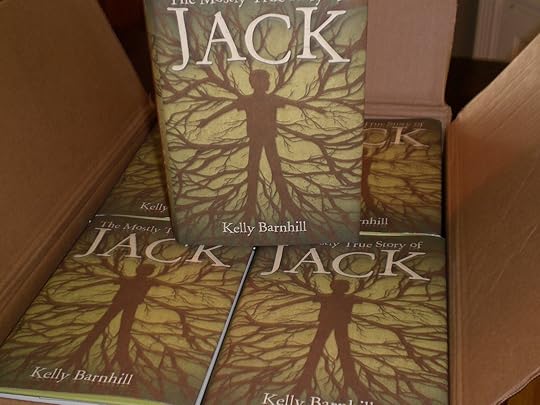
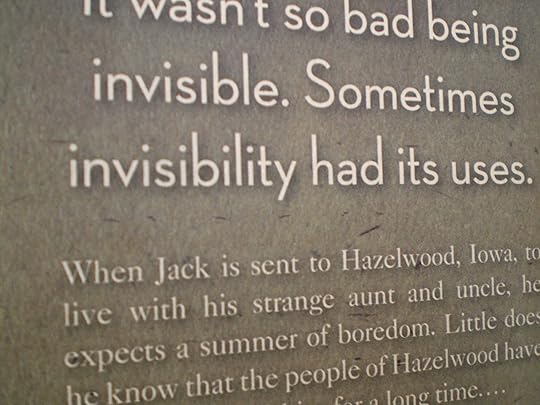 After a day that, quite frankly, was a bit of a struggle, and a slog, Ms. Kelly Barnhill is has removed her cardigan and her sensible shoes, and is now dancing around the room with the music turned up very, very loud. In my head I am composing notes of apology to my neighbors for the tremendous din and the whoops of joy, though, really, I know I will neither write nor send them.
After a day that, quite frankly, was a bit of a struggle, and a slog, Ms. Kelly Barnhill is has removed her cardigan and her sensible shoes, and is now dancing around the room with the music turned up very, very loud. In my head I am composing notes of apology to my neighbors for the tremendous din and the whoops of joy, though, really, I know I will neither write nor send them.
Mr. James Brown, will you please serenade us and entertain us with your glorious, fabulous and funky self? Thank you. Ahem.
[image error]
Filed under: Uncategorized








July 6, 2011
On Chatting
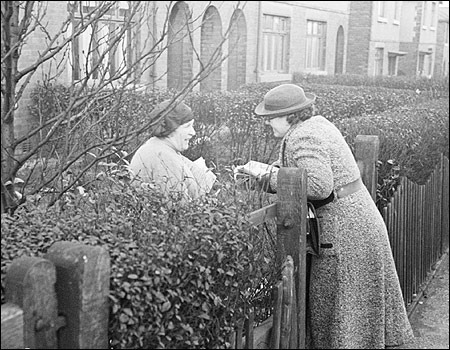
Once, a long time ago, I was fired from a job for excessive chatting.
This comes as no surprise to my children, who have been convinced for some time that my propensity towards chat is simply one element of my insidious plan to murder them from sheer embarrassment. If chatting could be weaponized, I'd be the most powerful woman in the world.
The fact, though, that I could be fired for chatting seemed, at the time, to be a bit rich, given that I was a waitress, and the people I was chatting with were my customers. Still. I do enjoy gabbing from time to time, and if it takes me an hour just to get to the end of my block because there are neighbors to chat with between my house and the corner, well so be it. I'd rather be chatty than the neighborhood grump.
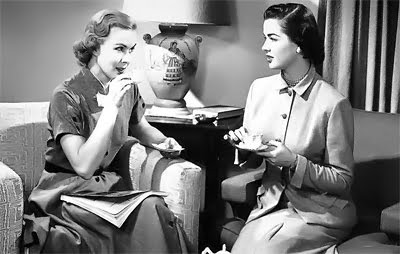
And I bring this up because last week I was lucky enough to attend the annual meeting for the American Library Association. Now, I have always loved librarians – school librarians in particular. I think anyone who has ever worked in a school holds a deep and abiding love for school librarians. But recently, as the parent of voracious readers, I hold a respect for my neighborhood librarians that deepens by the day. My eleven year old, for example, reads at least a book a day, and relies on the librarian to help her navigate her next choices. (In fact, we're heading over there shortly). Librarians have, in my family, had a deep and measurable impact, and I appreciated being able to tell them so.
I met librarians from Michigan, from Minnesota and Alabama and California and Florida. I met librarians from Alaska and Maine and Texas. I met librarians from everywhere. And they had books in their brains and books in their skin and books in their mouths and books under their fingernails and books hanging onto their skirts and belts like naughty children. Books fell onto the ground when they coughed and shot out of their eyes when they laughed and fluttered out of their hair like masses of butterflies.
They were magical, these librarians. But really, are you surprised? I wasn't.
And while it was fun reading to them from my book and talking to them about my book, it was way MORE fun listening to them talk about their jobs – both the good stuff and the bad stuff – because I'll tell you what, librarians are wicked passionate about what they do. And god bless them for it.
The point is this: I ended up in a gigantic building filled to the rafters with book lovers – the guardians of books, the catalogers of books, the organizers of books, the sellers of books, the writers of books and the producers of books. All under one roof.
And oh! The chatting!
I chatted about the relationships we have with books, about the constructivist principle in reading. I chatted about the lack of non-white characters in children's graphic fiction and the power of a single collectively read novel to change the culture of a classroom. I chatted about kids, about career choices, about food, about airlines, about sensible shoes, about variations in language, about wildfires, about e-piracy, about breastfeeding, about college, about the strange twists in a single life, about the people who altered our paths, about janitors, about Odd Jobs, about novel construction, about God, about laundry soap, about castle construction and cathedral design, about comic books, and about my beautiful beautiful city.
It was glorious.
Additionally, I was also able to do a reading at a breakfast in front of a bunch of librarians, along with the the incomparable Grace Lin and Andrea Davis. Here is a picture of the three of us. I am the gigantic woman in the middle.

(I mean, I've always known that I was tall, but holy smokes, that picture makes me look like I could destroy entire cities. I kinda like it.)
My job now requires an abundance of silence. I plan in silence, I take notes in silence, I scribble in silence, I brood in silence, I draft in silence and I worry in silence. The only time when I'm speaking is during the revision process, when I read my book out loud over and over and over again until the neighborhood is convinced that I'm utterly insane (they're not wrong) and I've gone hoarse, but that's a different kind of talking. That's talking to myself. There's no connection, no revelation, no learning. I love chatting because it affords me the opportunity to connect to another person's experience, and, in that moment, to truly and openly love them. Because listening is an act of love, you know?
In New Orleans, the weekend before last, I had the opportunity to chat, to listen, to connect, and ultimately to love approximately 400 people.
And it was awesome.
Filed under: Uncategorized Tagged: ALA, American Librarian Association, books, chatting, New Orleans, reading








July 5, 2011
Secret Doors
 Our dear friends, John and Mike, purchased a large, rambling house right by Lake of the Isles recently, with the intention of renovating it into what is guaranteed to be an astonishing piece of beauty. Now John is my husband's business partner at the architectural design firm Design 45, so I had been seeing the plans to this project for a while as my husband worked on them. But I only went into the house recently.
Our dear friends, John and Mike, purchased a large, rambling house right by Lake of the Isles recently, with the intention of renovating it into what is guaranteed to be an astonishing piece of beauty. Now John is my husband's business partner at the architectural design firm Design 45, so I had been seeing the plans to this project for a while as my husband worked on them. But I only went into the house recently.
After exploring its many back staircases and hidden rooms, we went to the basement and found the thing that is currently haunting the stories that my children whisper to one another at night.
A secret door.
A long-since boarded up secret door at the very back wall of the basement. An inch-thick rectangle of plywood has been bolted across it and covered in thick coats of gray paint again and again.
"What is this?" I asked.
"We don't know," John said.
"A door." Mike said. "Or at least it was. The children of the previous owner said that it used to be connected to a tunnel that went under the road and ended in the park."
I stared at them.
"You're kidding, right?"
"It's not true," John said.
"They said it was true," Mike said. "I don't know if it was so that they could access the park without having to go in the road or if it was a 1920′s speakeasy thing or what, but they were pretty sure there used to be a tunnel there."
I was astonished. "Well, can we open it right now?" I asked.
At this point, my children were nearly hopping out of their skin. Secretdoorsecretdoorsecretdoor etched in their wilding faces. (Is wilding a word? If not, I think we should all declare it so. Wilding is giving me an inordinate amount of pleasure right now.) Their hands shook; their eyes shone; they jumped and jumped and jumped.
"There might be treasure in there!"
"Or zombies!"
"Or all the spiders ON EARTH!"
"Or zombies!"
"Or suitcases full of money."
"Or zombies!"
"Or another world."
"Or zombies!"
"Or magic tools."
"Or ghosts AND vampires AND an anaconda AND zombies!" Leo was beside himself at that point. "Also, the Kraken!"
"We're not going to open it," Mike said.
The heads of my children collectively (and metaphorically) exploded. "WHY NOT?" they exclaimed.
Mike shrugged. "Everyone deserves a secret or two. Even a house."
And I suppose that's true. If they had opened the door right there and then, we would not have three weeks worth of Secret Door stories wafting through their play and their art and their dreams. We wouldn't have the nightly requests by my son for yet another installment of "Leo Barnhill And The Mysterious Door," of which there have been thirteen so far.
And it makes me think about my writing work as well. I don't like reading books that open every door, that explain every little thing. I like it when the author consciously obscures the truth, when they force me to simply guess at what lies beyond the locked door. Sometimes, it's enough to know the door exists, and what is beyond it is for me, the reader, to endlessly wonder and wonder and wonder.
In general, I hold Wonder in high regard.
There is a door – a secret door – in the basement at my friends' house. I wonder what's inside?
Now, as I wade through the revisions for my next book, Iron Hearted Violet, I am deliberately leaving some doors closed, some questions unanswered, some trails un-trod. Because I need to leave some space for my reader to wander. I want my readers to linger in this world I built, and to explore regions that I haven't even thought to visit. I want my readers to wonder about the doors that I did not open, and for my story to engender new stories. And I like that idea very much.
Very much indeed.
Filed under: Uncategorized Tagged: adventures in parenting, architecture, Design 45, home design, kidlit, lake of the isles, novels, remodel, revision








June 30, 2011
The Barnhill Family's Disaster In the BWCA: A Tale of Love, Loss, Heartbreak and Redemption
All right, maybe "disaster" is too strong a word. It wasn't a disaster. It was almost a disaster. Very, very almost.
First of all, in the spirit of full disclosure, I should warn you off the bat that if you are the sort of person to be deeply troubled by stories of Cute and/or Beloved Domestic Animals In Peril, then you should stop reading right now. I actually started this post a while ago, but I couldn't bring myself to finish it until we had a better sense of my dog's prognosis.
I couldn't write this when I honestly thought she was going to die.
Unfortunately, it's still an open question. She's definitely on the upswing, and after what she's been through, she looks fantastic. Still. We could still get Very Bad News next week, so I'm just hanging on to each precious day, and feeling grateful for it. Gratitude, I've found, is a powerful thing. Very powerful, indeed.
In any case, my dog is super old, super gnarly, and is, as far as I can tell, made of cast-iron. We've had more scares than I can count with her, and every time she comes out of it astonishingly healthier than she was before. She had a brain event a while ago when she lost control of her limbs. We thought that was it. She got better. She ate a dead fish and got a terrible salmonella infection that the vet said would have killed any other dog on earth. Not Harper. She has eaten, digested, and shat batteries without even a stomach ache. She's tough, smart, and fiercely loyal to us. She's the greatest dog on earth, and I'm speaking in entirely empirical terms here.
Anyway, here's the story:
We piled the family (two parents, three kids and a dog) in our extra-long, Kevlar canoe, along with backpacks and Duluth packs, and slid into the wilderness.
The Boundary Waters, as usual was exquisitely beautiful. It was greener than in recent years due to heavy snows and consistent (persistent?) rains, the rivers were plump and high, the lakes lousy with fish, and wildlife scurrying in every direction. It was also, however, lousy with bugs. Massive swarms of the biggest mosquitoes I've ever seen in my life crowded the air, divebombed our eyes, invaded our noses and mouths and assaulted our skin. It was a mosquito invasion, a mosquito apocalypse, a mosquito Plague from a very pissed-off God. We cowered and wailed and begged for forgiveness, but received no succor. We learned later that we're having a banner year for mosquitoes this year. So that's great.
Now here's the thing about camping: even when it sucks, it's great. It was cold, drizzly, and windy. The kids work hard, we work hard and it's awesome. One of the things about being outside from the moment you wake up to the moment you crawl into the tent. is that you become incredibly good at noticing things. We notice the shine of the clouds on the water. We notice the wiggly shadow of a beaver as it slides just under the skin of the waves and disappears into the weeds. We notice the rhythms in our own bodies, and the rhythms in one another. We anticipate one another better, respond better, listen better. When we're in the woods, we operate better as a family.
And there was one thing that both my husband and I noticed: Harper was slowing down. We knew it would happen, of course. Some day. In the future. Harper was sixteen after all. At least. She came into our lives in the fall of 1998, and the vet said she was between three and six back then. And after all these years, she never showed a hint of ever slowing down. She went running with me, chased squirrels and rabbits, and was a general spaz.
Still.
This year.
This year she lagged.
This year she slowed.
This year, instead of leaping into the canoe and leaping out, she paused, planned, stumbled.
My husband and I watched her and worried. "This is probably her last year camping with us, " we said over dinner. And we were sad about this. When Harper first came into our lives, we were a couple of idiot kids with no sense of direction, no plans, no lives. Harper made us into a family. And we never looked back.
On Saturday morning, the day we were supposed to leave, I woke up before everyone else, stumbled out of the tent, and realized that Harper was gone.
Like, completely gone.
I filled her food and water bowl, called for her, walked the trails that spidered away from the campsite before they vanished into the thick undergrowth, and found nothing. No tracks. No signs. We heard nothing in the night. The ground wasn't disturbed. She just….. vanished.
Come back, come back, come back, my heart said. But she didn't.
So, we couldn't leave. Fortunately, we always pack an extra day and a half's worth of food, because you never know if it's just going to be too dangerous to paddle out. The weather can be changeable and dangerous, and it's important to be prepared.
Also, one can lose one's dog. And you can't look – or weep – on an empty stomach.
For the rest of the day we looked. Ted bushwacked in three directions, calling her name, but heard nothing. We piled into the canoe and paddled along the jagged shore of the large lake, calling and calling, but nothing. We talked to other campers, but they had seen nothing, heard nothing.
Come back, come back, come back.
As the day waned, Ted and I tried not to look at each other. We tried to smile for the kids. We tried to keep them upbeat. We did our best to keep from crying, because we knew that any emotion we show, the kids will feel a thousand times over. "This sort of thing happens all the time," we lied. "Harper's a tough cookie. She always knows where we are. She'd never leave us for good, never." That part had always been true….but what if it wasn't?
Finally, we went back to the portage trail that we had hiked across to get to this particular lake in the first place. We figured, if she had run off chasing something and got turned around, she might have ended up on the trail, recognized the smell, and stayed put until we came back.
In retrospect, it wasn't a great theory, but it was all we had.
It was an awful trail, thick with bugs and mud, and about a mile long. And while it was easier to do without Duluth packs on our backs and a canoe on our shoulders, our hearts weighed heavily inside us, and so it was a long, trudging slog. The only one among us with a spring in his stride was my son, Leo.
Leo the true believer.
Leo the ardent friend of his dog.
Leo, whose first language is Dog, who's prime culture is Dog, who was – and I will admit this freely – raised by his dog.
Leo believed that we would get to the end of the trail, and his dog would be waiting for him. Leo believed that he would be exasperated but happy, and that the re-united family would trudge on back.
But Harper wasn't there. Leo stood there for a moment, his damp breath punching in and out of his nose, before dropping his backpack to the ground, tilting his little face to the sky and letting out a long, brokenhearted wail.
And the girls cried.
And Ted cried.
And I cried.
Because there was no pretending anymore. There was no illusion of a happy ending. We had lost our dog. And lost her forever. We took one another's hands and trudged back to the canoe.
Come back, come back, come back, our hearts thundered.
That evening, I made dinner. We sat on a log and told stories about Harper. I told them – though they heard it before – about how Harper showed up at our friend's house, sick, scrawny, and desperate for love. I told them how Harper took care of Ella when she was a baby, herding her like a little lamb, keeping her near me as I desperately typed out my four-times-delayed Master's thesis. We told them how Harper used to grab the leashes of other dogs and take them for walks.
"We love Harper," the kids said.
"We know," we said. "We love her too."
Come back, come back, come back, in our breathing in and our breathing out, in our watering eyes, in our twitching lips, in our shaking hands.
In the middle of doing the dishes, we heard a sound – a high, bright howl. I thought it was a loon. Or a pack of loons. Loons aren't in packs, I thought absently.
Ted leaped to his feet. "HARPER," he called. That's not Harper, I thought. It's a pack of loons. "Harper," he called as he turned on his heels and ran up the rocky knoll next to camp.
The howls pitched higher, and there were more of them. Coyotes? Wolves? It certainly sounded like more than one animal. The kids followed Ted, calling wildly for their dog.
"Harper, Harper, HARPER!"
About a third of a mile down the lake, Ted saw a scuffling in the scrub. Then the points of ears. Then a curled tail. Then our dog, scrambling out of the woods and into the water.
"Don't take your eyes off her," he told the kids. "Don't let her out of your sight." He ran down to the shore and leaped into the canoe, paddling like mad to our dog.
It was then that I started sobbing.
Ted carried her back to the campsite and we gathered around her. She was in rough shape. She had some puncture wounds around her snout and some cuts on her two back flanks. She didn't want to put any weight on her back right leg. But the worst of it was a benign tumor on her front left leg – a tumor that the vet had told us was dangerous to remove at her age since older dogs don't do well with surgery, and she couldn't care less about it, so why bother. It had grown by quite a bit, was now irregularly shaped, and quite red. It oozed.
"She may not make it through the night," Ted told me.
"I know," I said. "And we may have to carry her on the portages home."
"I know," he said, and we both knew that we would happily carry her down a thousand portages, just to get her home again.
Harper is home now. And she's doing great.
"This dog is built to heal," our vet said. "She may even outlive us all." And I believe it. She's on antibiotics and they appear to be working. She's eating and drinking and annoying the neighbors with her obsessive barking at All The Squirrels. She's not out of the woods by any means. We still may find out that her tumor has outgrown its blood supply, that it's now necrotic and will eventually kill her. That's a possibility and I accept it.
Still, she's home.
Still, she's alive.
And I know I don't get to keep her forever, and I know that her life has an expiration date, but by being grateful for today, I also have the opportunity for gratitude for every day. Gratitude, I think, is one of the great forces of the universe. We are much happier when we are saying thank you than when we are saying please. Gratitude anchors us in the world we are in, this moment, this experience, this life. When we are in a state of gratitude, we are most fully alive.
I am grateful that Harper's okay.
I am grateful that she came into our lives.
I am grateful for the irrevocable shift that she precipitated in my life. I am grateful forever.
So this is my prayer right now: Thank you.
Filed under: Uncategorized








June 14, 2011
Into the Woods

Last year, I took my family into the wooded north of my fair State – to a wilderness area known around these parts as the Boundary Waters (officially the BWCAW, or Boundary Waters Canoe Area Wilderness). If you've never been, you simply must. Ancient rocks, abundant wildlife, deep, cold lakes with some of the clearest water in the world. Moose. Eagles. Cougars. Wolves.

It's magnificent.
We went sporadically when the girls were little, but ever since my son turned two, we've gone every year. And every year, we've come home saying, "Well, that was definitely our hardest year. Next year will be easier."
We said that when Leo tried to lose himself on the portage.
We said that when he stabbed a hole in the tent with a stick.
We said that when he peed on my sleeping bag ….. on purpose.
We said that when he dumped boiling water on his feet – right before a huge storm, and we couldn't leave.
And we said that last year, when, after using the latrine and accidentally dropping the hand sanitizer into its putrid depths, decided that he would be responsible. He would be useful. And he would be brave. So, my son – my irony-loving son – hooked his arm on the lip of the toilet, and lowered himself inside.
He returned to the campsite, up to his thighs in decomposing shit, proudly displaying the hand sanitizer.
Next year, Ted and I told ourselves with quavering voices and shaking hands. Next year will be easier.
And today, I believe it. Today, we venture into the woods.
There is a great poetry to the wilderness excursion. We go seeking……something. Peace. Riches. Serenity. Enlightenment. Adventure. Castles. Dragons. Enchanted Kings. And we re-emerge into our real lives indelibly changed.
Or the world that we left has shifted under our feet.
Or the universe we left is not the universe to which we return.
We go to the wood and survive in the wood and are changed by the wood. We become fairy tale, fable and myth.
Last year, when we were camping, I brought a notebook and wrote the opening chapters of my project Witless Ned and the Speaking Stones. Since then, I finished the book, and realized that Ned needed an accomplice – a girl named Aine. Now I return to the story, again in longhand, and will restart the narrative while sitting on a rock, next to a groaning tree and a windy lake.
And you know, I'm rather excited about it.
Filed under: Uncategorized Tagged: boys camping, BWCAW, camping, canoe, family, MG, middle grade fiction, my son is freaking crazy, wilderness, writing novels









